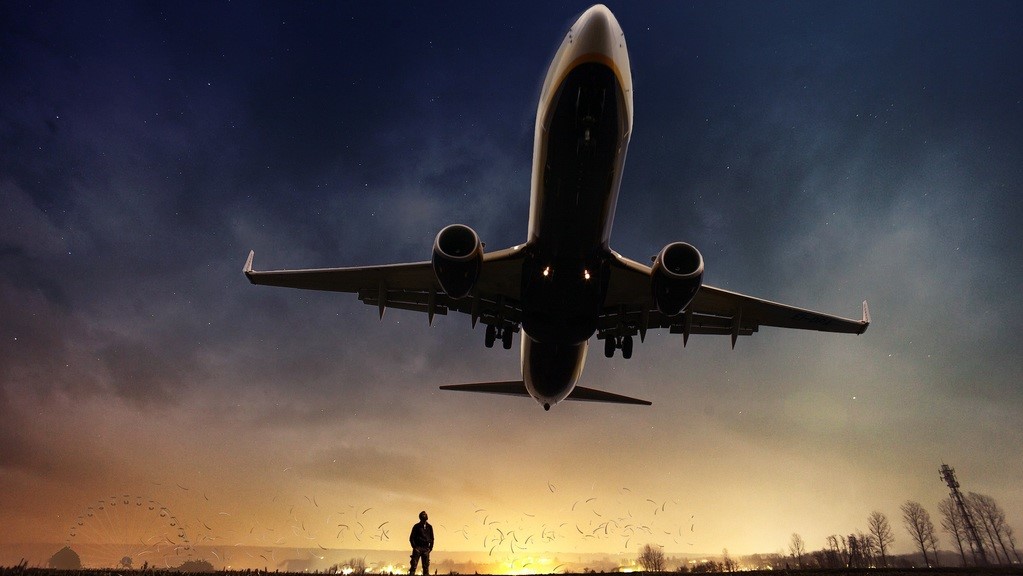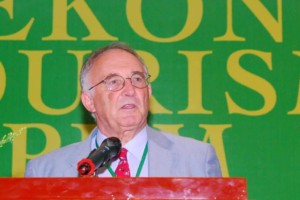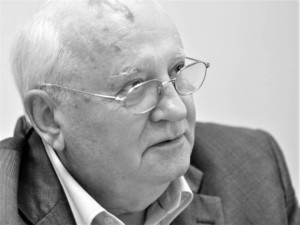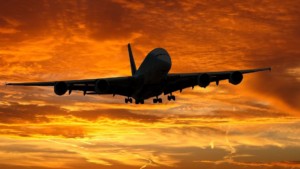Climate change & air travel: Why we have a responsibility to tourism-dependent countries

Writing for The Conversation, Tom Baum of the University of Strathclyde discusses the responsibility borne by rich-world nations — and individual travellers — for poor countries’ “neo-colonial dependence” on tourism and air travel.
Few would deny the threat to our planet posed by climate change, or the role that humans have played in the degradation of the natural environment. These arguments have been highlighted by Greta Thunberg, the young Swedish activist whose single-minded determination forced the powers of Europe to pay attention.
Her travels from Sweden by train highlighted one of the most high-profile causes of our emissions problem: air travel. In Sweden the notion of flygskam or “fly shame” is well-established among environmentalists who demonstrate increasing resistance to air travel as a perceived right.
The answer would appear to be simple: adopt the cause espoused by campaigners such as Extinction Rebellion and cut our current addiction to air travel. This would benefit the environment and negate the economic and environmental costs of airport expansion. If people could be persuaded not to fly, or fly less often, then we would all be winners. Well, maybe.
Tourism as economic driver
My research focuses on a critical analysis of the complex relationship between the development of international tourism and communities in some of the poorest countries which host visitors from around the world.
Tourism is one of the “big ticket” items in global economic development, especially in the global south – the less developed world. Tourism generates 10.4% of all global economic activity, and the sector is of increasing importance to least developed countries (LDCs), where it represents 7% of total exports of goods and services, a figure that stands at 10% for non-oil LDC exporters.
Tourism is also the major economic driver in many small island developing states (SIDS). According to Susanne Becken and team at Griffith University in Australia, tourism employment in LDCs and SIDS increased from 3.2m jobs in 1995 to 8.6m jobs in 2018. Tourism development in LDCs and SIDS is enthusiastically supported by national governments, major international agencies, aid programmes and private sector investment.
It has undoubtedly brought prosperity to some, opportunity to local entrepreneurs and jobs to others. It has also stimulated new opportunities in agriculture and services as well as infrastructure improvements in telecommunications, roads and air connectivity.
But in many places tourism has substantially been “imposed” on communities. The main beneficiaries are businesses, not the people directly affected. Such development has frequently come at a cost to communities, including the elimination of traditional subsistence industries such as fishing and agriculture, frequently displaced as a result of land grab by unscrupulous tourism property developers.
The Vietnam example
My recent research took me to Phu Quoc, a Vietnamese island in the Gulf of Thailand. In the last five years, it has shot to prominence as a destination and is promoted for tourism development by both national and provincial governments and the private sector.

Until very recently, Phu Quoc, which is home to 107,000 people, was largely untouched by development and lacking in basic health and education infrastructure. In 2017, the island received 1.96m visitors, a 35% year-on-year increase. Figures for 2018 point to continued growth, estimated at 37% from 2017 arrivals.
International tourists come from countries in the region and also from long-haul markets in Europe. To accommodate tourism, the island faces the loss of its traditional economy and a rise in inevitable problems that come with such rapid growth – land speculation, land disputes, fraud, pollution and social disorder to name a few. New employment opportunities for islanders are largely confined to low skills and poorly remunerated jobs, with scant opportunity for advancement.
Tourism and tradition
Research has not as yet addressed the implications of no fly for these developing countries, and such analysis will be a useful contribution to this debate. But if we no longer travel as much because of our commitment to the environment, what are the consequences for Phu Quoc and places like the Seychelles, St Lucia and Bali? Might they revert to their traditional way of life if tourism development disappeared?
All are destinations where the traditional economy and culture have been side-lined or destroyed on the promise of tourism’s riches. That promise depended on the transformation of a landscape dominated by agriculture and fishing to a concrete infrastructure that curtails or even obliterates traditional activities. And all depend on air access, investing in infrastructure to accommodate jet loads of tourists at high volume.
What happens, then, when the planes stop coming? Arguably, in time, nature would reclaim the runways and resorts that would be abandoned. But that will take time, if indeed it happens at all. In the meantime, it may be too late to revert to the economies and lifestyles of the past. Many would say this is a price worth paying to save our planet. In other words, without tourists, Phu Quoc and similar destinations could become wastelands with no way back to prosperity. Which might be seen as their problem.
But it’s not that simple. Communities in LDCs and SIDS – or, rather governments on their behalf – were seduced by the promise of prosperity through tourism. There was an implicit commitment from market countries through aid and loans that the planes would keep flying and the tourists keep arriving.
This form of neo-colonial dependence now places an obligation on countries and individual travellers whose demand created these destinations. However well-intentioned the no-fly campaign is, it is challenging from an ethical point of view to abandon these tourism destinations.
We have a responsibility to these countries now dependent on tourism for prosperity. At a minimum, we need to support communities to develop economic alternatives to tourism linked to air travel. This could be through stronger focus on domestic and regional tourism markets, or by empowering and re-skilling communities to rediscover more traditional economic activities.
But much of this tourism development is irreversible and communities are unlikely to recover from a major decline in visitors in the short-term. Even though it is clearly necessary to reduce our carbon footprint by cutting air travel, we must also reconcile this change in behaviour with the unintended consequences for powerless communities in the developing world. They are the people who will most likely suffer greatly in our belated rush to reverse climate change.
This article by Tom Baum, Professor of Work, Employment and Organisation, University of Strathclyde, was originally published on The Conversation, July 23, 2019. It has been republished on the “GT” Blog under a Creative Commons license. (The “GT” Blog very slightly shortened the headline and used different images.) Read the original article.
Featured image: What happens after the last plane departs? Image (CC0) via PXHere.






